South Punjab electoral scene dominated by elite
Candidates of political dynasties leverage biradri and spiritual ties
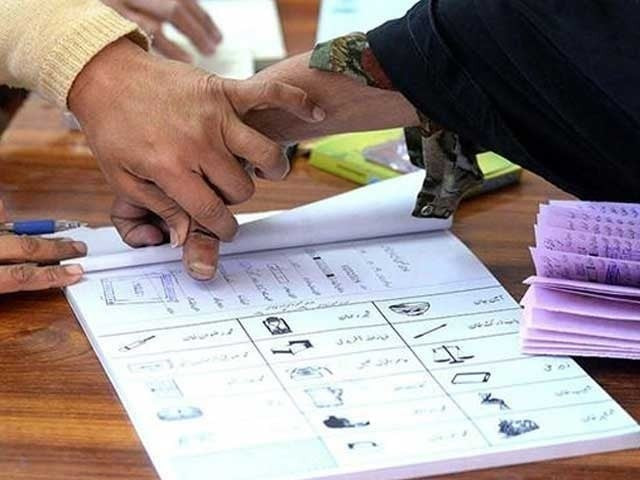
As the February 8 general elections approach, the Multan division, a pivotal center of power in South Punjab, has witnessed a surge in electioneering after a tepid start. This region holds significant sway, attracting attention from various political heavyweights eager to secure a substantial number of seats for their parties.
Home to influential political dynasties such as the Gilanis, Qureshis, Bosans, Dogars, Mehrs, Tareens, and more, Multan is witnessing the mobilization of these leaders who are engaging in rallies, hustings, and door-to-door campaigns to garner support.
In tandem with the national trend, where political parties strive to captivate voters with fresh slogans and promises, Multan's political arena is abuzz with activities aimed at addressing the myriad issues faced by the masses. Each party asserts its commitment to alleviating the public's challenges.
Notably, the campaigning in Multan has intensified for two major contenders, the Pakistan Peoples Party (PPP) and the Pakistan Muslim League-Nawaz (PML-N). Simultaneously, independent candidates, purporting to be supported by the Pakistan Tehreek-e-Insaf (PTI), are also actively participating.
Despite the nation grappling with internal and external challenges, the political fervor remains palpable. The electorate, undeterred by chilly weather, is vociferously expressing its stance, contributing to the dynamic and spirited atmosphere leading up to the national ballot.
The Multan district, intricately divided into six National Assembly (NA) and 13 Punjab Assembly (PA) seats, stands as a battleground for 82 candidates vying for electoral glory. Diverse political affiliations are represented, with candidates hailing from prominent parties and independents alike.PML-N, PPP, Istehkam-e-Pakistan Party (IPP), and others are fielding candidates under their respective party symbols. Notably, individuals purportedly backed by the Pakistan Tehrik Insaf (PTI) are navigating the electoral landscape as independents, adhering to election regulations concerning unique symbols.
Multan, Pakistan's fifth most populous city, with a population of 3.06 million and a literacy rate of approximately 44%, is a significant electoral arena. The district boasts a total of 2,077,281 registered voters, comprising 1,115,853 males and 961,428 females.
Despite the influence of feudal lords, businessmen, and the elite upper class in shaping the district's political landscape, the electoral contests remain intense. Family influence and established party vote banks, coupled with the presence of a substantial young voter demographic, add complexity to the election dynamics and could sway the outcome significantly.
Noteworthy political figures such as Yousaf Raza Gilani, former prime minister, Shah Mahmood Qureshi, former foreign minister, Sikandar Bosan, former food minister, and Amir Dogar, former chief whip in the National Assembly, contribute to the city's political vibrancy.
Important among the PTI-backed independent candidates are Amir Dogar for NA-149; Zain Qureshi for NA-150 and Mehr Bano Qureshi for NA-151. They face a tough competition from IPP Patron-in-Chief Jahangir Tarin in NA-149, and PPP’s Rana Mahmood and PML-N’s Javed Akhtar Ansari in NA-150.
Former prime minister Syed Yusuf Raza Gilani of the PPP is set to give a tough time to his rivals in NA-148, where political pundits foresee a lively contest between him and Ahmed Hussain Dehr of the PML-N. His son Abdul Qadir Gilani will face off PML-N's Javed Ali Shah in NA-152.
In Multan city, the most fierce election rivalry is between the Gilani family and the Qureshi family. In NA-151, Mehr Bano Qureshi, daughter of senior PTI leader Shah Mahmood Qureshi, rekindles that rivalry as she challenges Yusuf Raza Gilani’s another son Ali Musa Gilani, in addition to PML-N’s Ghaffar Dogar.
Another lively contest is expected in NA-149, where IPP Patron-in-Chief Jahangir Tarin is trying his luck against Malik Muhammad Amir Dogar, the former chief whip in the National Assembly and Rizwan Ahmad of the PPP.
The dynamics for Multan's politics rotate around the Biradri system, coupled with respect among rural people for the Pir families. Hence, if the party vote is supplemented by the spiritually-associated vote, position of the candidates gets stronger.
Prof Dr Muqarrab Akbar, the chairman of the Political Science Department at the Bahauddin Zakariya University, stated that since long, Biradri system had been an important factor in the voting behaviour in these areas.
"But with the passage of time, this influential factor of caste and clan is gradually losing steam even in under-developed areas due to social media boom and awareness among voters. The people irrespective of their circumstances, tend to repose confidence in current paradigm of politics,” he added.
"They repose trust in democratic system and think that elections should bring positive change. Media and political campaigning also educate the voters about their right and power of vote," Dr Muqarrab Akbar added.
On the other hand, Gilani, former prime minister and a senior PPP leader, stresses the importance of political stability as he believed that the country would witness economic and political stability through free and fair elections.
PML-N Multan President Bilal Butt hoped to persuade the masses through issue-oriented campaign which could secure victory for the party. Ejaz Hussain Janjua, a leader of the PTI, stressed that the party had chalked out a strategy to contest general elections diligently.

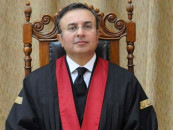

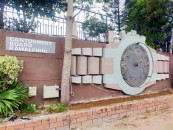

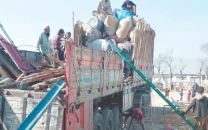
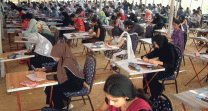




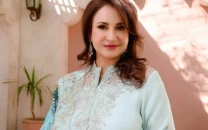




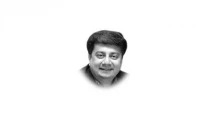


COMMENTS
Comments are moderated and generally will be posted if they are on-topic and not abusive.
For more information, please see our Comments FAQ